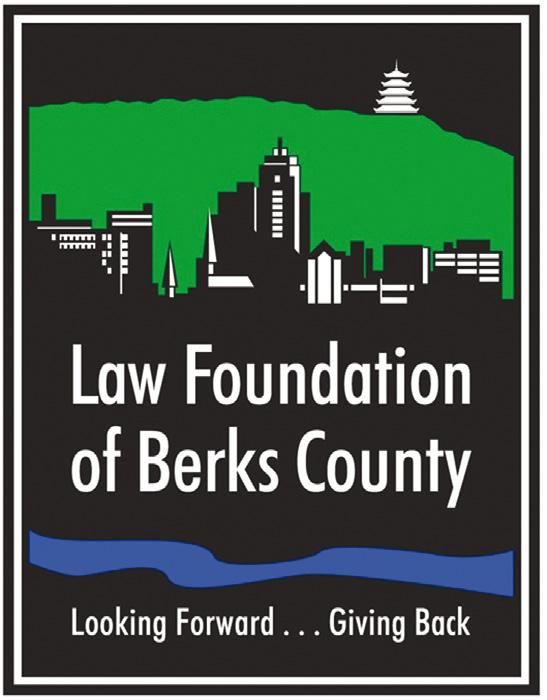
4 minute read
Opening Statement
opening statement

This may come as a surprise to many of you, but I struggle in choosing topics for this article. But one of the privileges of being President is that I have access to the final draft of Don Smith’s “Closing Argument” column before I offer my “Opening Statement” column. And Don has always been a good source of timely topics in need of meaningful discussion.
In the column published in this edition of The Barrister, Don cites two thought-provoking publications which introduce the idea that the United States Constitution might be the source of many of our social ills rather than the solution for them in support of a call to discuss what amendments to the Constitution—or how a new Constitution altogether—might serve to better address our present ills. Don’s attention focuses on the value in a discussion on adjusting the number of Justices serving on the United States Supreme Court, noting that one of the positive outcomes of such a change might be to “achieve consensus in all cases.” Don’s use of this phrase immediately brought to mind a fond memory of Don that I am compelled to share in light of a recent tragedy in our Bar.
In 2014, Don Smith asked one of my associates to author a book review for publication in this magazine on the book titled, Scalia, A Court of One, a critical analysis of Justice Scalia written by Lafayette College Professor of Civil Rights, Bruce Allen Murphy. Don chose this associate precisely because Don had correctly identified him as a hardcore fan of the late Justice Scalia.
Continued on page 8
ATTORNEY DISCIPLINARY AND ETHICS MATTERS
STATEWIDE PENNSYLVANIA MATTERS NO CHARGE FOR INITIAL CONSULTATION
Representation, consultation and expert testimony in disciplinary matters and matters involving ethical issues, bar admissions and the Rules of Professional Conduct
James C. Schwartzman, Esq.

• Judge, Court of Judicial Discipline • Former Chairman, Judicial Conduct Board of Pennsylvania • Former Chairman, Disciplinary Board of the Supreme Court of Pennsylvania • Former Chairman, Continuing Legal Education Board of the
Supreme Court of Pennsylvania • Former Chairman, Supreme Court of Pennsylvania Interest on
Lawyers Trust Account Board • Former Federal Prosecutor • Selected by his peers as one of the top 100 Super Lawyers in
PA and the top 100 Super Lawyers in Philadelphia • Named by his peers as Best Lawyers in America 2022 and 2015
Philadelphia “Lawyer of the Year” Ethics and Professional
Responsibility Law and Legal Malpractice Law

111 North Sixth Street • Reading, PA 19601 (215) 751-2863
Find Your Dream Home!
Confidence for Tomorrow.
Find it with a Domani Wealth Advisor.

Thomas K. Williams, CFP®, CPA tom.williams@domaniwealth.com
Michael J. Dinan, CFP®
michael.dinan@domaniwealth.com
Wyomissing Office | 610.927.4685 domaniwealth.com
Domani Wealth, LLC (“Domani”) is an SEC registered investment adviser with its principal place of business in Lancaster, Pennsylvania. Domani and its representatives may only transact business in states where they are appropriately notice-filed and registered, respectively, or exempt from such requirements. For information pertaining to the registration status of Domani, please contact the SEC or the state securities regulators for those states in which Domani maintains a notice-filing.
Continued from page 6


The associate accepted the invitation and, after reading the 644page attack on Scalia’s jurisprudence, submitted his review for publication in the Winter 2015 edition of The Barrister.
Murphy’s book and my associate’s review were published about the time I had first become aware of a movement suggesting that consensus among judges on appellate courts was a growing necessity and that dissenting opinions were a natural enemy of consensus. In response to Murphy’s complaints that Scalia’s dissenting opinions were harmful to the process, the book review argued that “Murphy’s charge would fare better if the oath was to ‘create consensus’ rather than to ‘support and defend the Constitution.’” I wholeheartedly agree. The threat presented to the majority of any court by a well-reasoned and even blistering dissent promises future majority opinions will be better reasoned and, hopefully, more defensible. The lone dissent of Justice John Marshall Harlan that challenged the rationale of the majority in Plessy v. Ferguson kept the legal discussion alive for nearly six decades while America struggled with the truth that ultimately became the majority opinion in Brown v. Board of Education.
In April 2015, my associate’s book review made its way to the desk of Justice Scalia, who read the article and offered in response a handwritten note that simply read, “Mr. Crossett—Thanks for so ably coming to my defense. Best regards, Antonin Scalia.”
On June 26th, my former associate, David W. Crossett, died in a tragic accident at his home. He was intelligent. He had a deep passion for the law and justice which is its end. He was competitive and firm in many of his convictions. He was devoted to his wife, Cheryl, and his four young children. His untimely demise has served as a stark reminder to many of us that no one is guaranteed breath tomorrow. To David’s family, and on behalf of the more than 600 members of this Bar Association, I offer the deepest condolences of his colleagues.
In closing, we should support Don’s call for a discussion on whether and what changes should be made to the United States Constitution to facilitate a more perfect union. But in doing so, I would not expect consensus because in a society of free thought, the only conclusion I might expect consensus on is that none of us are guaranteed tomorrow.










